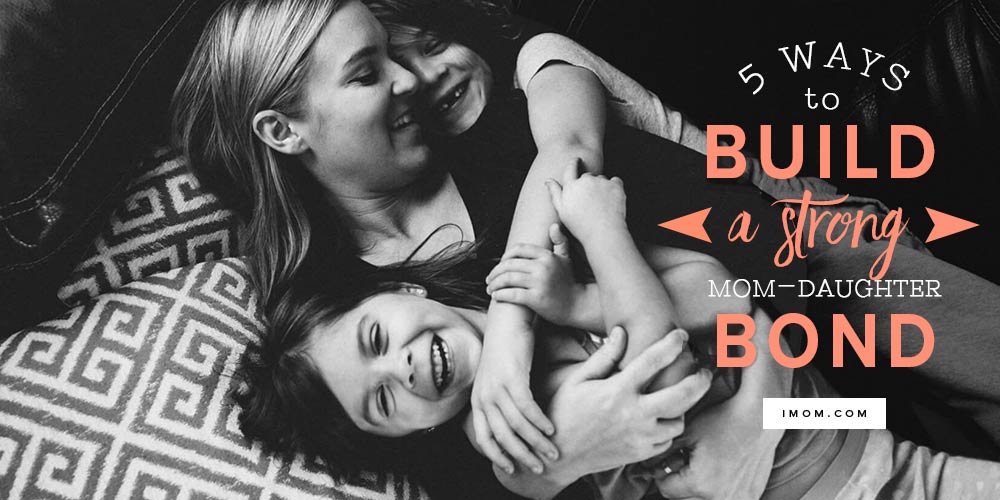As I double-knotted my shoes, I noticed a shadow hanging over me. I looked over to see my 10-year-old’s size 8 sneakers. “Can I go?” We headed out the door for a walk, and that started a ritual that lasted for years. We didn’t walk every night, but we did it enough that it built a beautiful routine. We’d check in on “life,” he’d bring up stuff that required my undivided attention, and we’d even occasionally walk to the grocery store and grab a drink for the return leg of the walk. When we got back to the house, we’d check our pace and high-five each other.
I didn’t realize it at the time, but routines like those walks are great for building friendships with our kids. Some parents think being your child’s friend is bad, and it is if being a friend means sacrificing your authority or having loose boundaries. But building friendships with kids is what leads to deeper respect and a lifelong relationship with them. If that sounds like something you want for yourself and your kids, here are 6 ways to build a friendship with your child.
1. Make a lifetime commitment.
Building friendships with your children requires you to make an unconditional commitment to them for life. This commitment says, “No matter what happens, I will never stop loving or supporting you.” As I was growing up, my dad reminded us daily of his love and commitment. At the entryway of our home hung a wall plaque which read: “To Norma, Kari, Gregory, and Michael, in assurance of my lifetime commitment to you.” This plaque gave me the security to be close to my father because I knew he was committed to me for life no matter what trouble I got into or what positive things I accomplished.
Building friendships with your children requires you to make an unconditional commitment to them for life. Click To Tweet2. Become a student of your children.
Instead of trying to pigeonhole our children into something we think they ought to become, we should carefully observe them and assess their strengths and struggles. When’s the last time you really stepped back and contemplated your child’s unique personality? Is your child strong-willed, fun-loving, sensitive, or very detailed? What are her likes and dislikes? What is the best way to motivate your child? What are his specific goals and dreams? As you begin to answer these kinds of questions you will be able to “tailor-make” your friendship according to each child’s personality.
3. Schedule time together.
When asked about the privileges of growing up in a wealthy home, a young, successful attorney said that the greatest gift he ever received was from his father. One Christmas morning, amongst the piles of neatly wrapped presents was a small box. Inside was a note saying, “Son, this year I will give you 365 hours, an hour every day after dinner.” Remember that friendships don’t develop by chance or accident. Instead, meaningful friendships are a result of spending time together on a regular—preferably daily—basis. Get into the habit of setting special times for your children each day. It doesn’t have to be an hour. Even five minutes at bedtime or a lap around the block will strengthen your relationship.
4. Be available.
Besides having scheduled time with your children, to develop meaningful friendships, you need to be available to them during unscheduled times as well. That means being home when they’re home (not always, but often). It means putting down what we’re doing when they verbally or nonverbally ask for our attention. It means turning off the podcast we’re super into while we’re in the car together so they can talk to us.
5. Listen in an understanding way.
Another way to build friendships with your kids is to listen to understand, not just hear and lecture. In other words, become an active listener. Active listening involves eye contact with the speaker. A good listener never assumes she knows what her child is saying. Instead, she asks clarifying questions and repeats what she thinks her child meant.
6. Give meaningful touch.
When you gently touch your child, millions of nerve endings send messages to the brain, where chemicals are released. Researchers say that parents who hold their children at least six times daily can add months or maybe even years onto their life span. Conversely, a child’s growth is stunted when not touched on a regular basis. Does your teenage boy want a hug every day? Probably not. Does your daughter want you to play with her hair like you did when she was itty bitty? Doubtful. But little connections like a squeeze on the shoulder, a kiss on the top of the head, or a side hug send the message that Mom is physically and emotionally near.
What do you try to do every day that builds on your friendship with your child?
Portions taken with permission from Greg Smalley, Psy.D.










